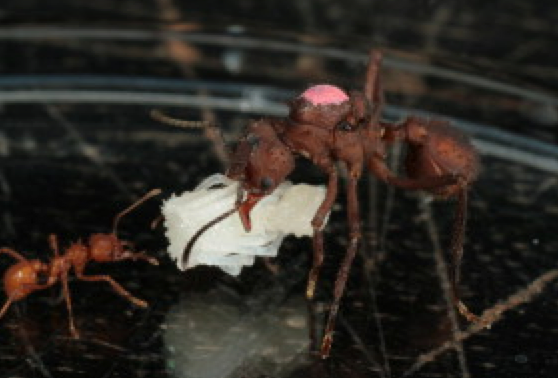Leafcutter Ants, the Fungal Farmers
Biology 342 Fall 2014
Caleb Kalisher
Adaptive Value
The adaptive value looks at the ultimate benefit of the behaviors or characteristics of an organism. This often is represented by how those behaviors, or characteristics impact the lifetime reproductive success (LRS) of an organism. Discussing LRS within ants is a rather interesting topic, as leafcutter ants only have one sexually viable female in their colony, the reproductive success of an individual ant, with the exception of the queen, is going to be zero. Because of this, the LRS of the ants is measured based on the reproductive success of the queen, which is one of the insects with the greatest longevity (Evison & Hughes 2011).
Caste Changing of Virgin Queen Ants
The division of labor within an ant colony is generally considered to be relatively static, as it is morphologically determined. However, there are some species of leafcutter ants that have shown a specific change of caste, which has rather substantial impacts on the LRS of the colony. Queen ants who lose their wings before being able to reproduce would normally be considered to have lost their benefit to the colonies LRS, however these virgin ant queens have been shown to take advantage of their superior body size and act as worker, or soldier ants, and therefor benefit the colonies reproducing queen. By doing so, they are able to increase the fitness of the colony (and therefor the queen) despite no longer being able to start a new colony and further their, individual LRF. (Nehring et al. 2012).
